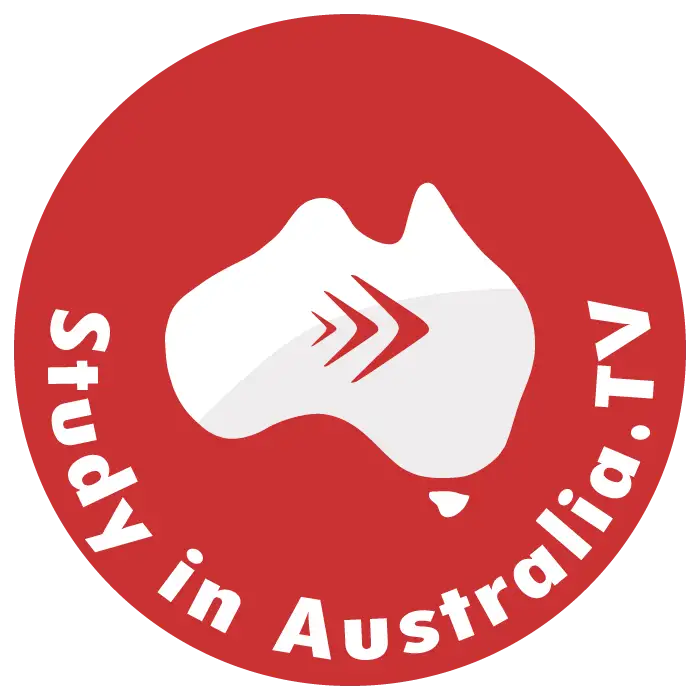Comprehensive Guide to Studying in Australia 2024-2025

Your In-Depth Guide to Studying in Australia for the 2024-2025 Academic Year
Australia, with its top-tier universities, vibrant culture, and stunning landscapes, has become a coveted destination for international students. If you're contemplating an Australian education for the 2024-2025 academic year, it's crucial to understand the detailed steps involved in the application process. This guide delves deeper into the essentials, providing you with a comprehensive roadmap.
Detailed Documentation: The Foundation of Your Application
1. Passport: Your International ID
Your passport is your international identifier. Ensure it's signed, valid throughout your stay, and with spare pages for visa stamps. Consider its expiration date carefully; renew it beforehand if necessary to avoid mid-study disruptions.
2. English Language Proficiency: Your Communication Key
English proficiency is non-negotiable. Different programs demand varying scores:
- Undergraduates might need a TOEFL score of 80-100 or an IELTS score of 6.0-6.5.
- Postgraduates often require TOEFL scores of 90-110 or IELTS scores of 6.5-7.0.
- Doctoral students could be asked for even higher scores, emphasizing their advanced academic communication skills.
3. Academic Transcripts: Your Educational Blueprint
These documents are pivotal, offering a detailed record of your academic journey. They should include course titles, grades, credits, and any honors, providing a transparent overview of your scholarly background.
4. Statement of Purpose (SOP): Your Personal Manifesto
This narrative is your chance to shine, detailing your academic objectives, career aspirations, and reasons for choosing your specific program and university. It's a personal yet formal document where clarity and sincerity are paramount.
5. Reference Letters: Third-Party Endorsements
These letters should come from individuals who know you academically or professionally, offering insights into your abilities, character, and potential. They should be recent, relevant, and resonant with your chosen field of study.
6. CV/Resume: A Chronological Narrative
Your CV or resume is not just a document; it's a narrative of your academic and professional journey, meticulously detailed to showcase your evolution and readiness for the program you're applying to. Here's how to craft a CV that stands out:
Academic Achievements
- Institutions Attended: List all educational institutions you've attended, starting with the most recent. Include the full name, location, and dates of attendance in a clear format (DD/MM/YYYY).
- Degrees and Certifications: Detail every degree or certificate earned, including the field of study, the award date, and any honors or distinctions received.
- Relevant Courses: Mention specific courses relevant to the program you're applying to, especially if they demonstrate particular expertise or knowledge areas.
Professional Experience
- Employment History: Provide a chronological list of your work experiences, including job title, employer, location, and dates of employment (DD/MM/YYYY). Emphasize roles and responsibilities that align with your academic interests or demonstrate transferable skills.
- Achievements: Highlight key accomplishments in each role, using quantifiable metrics where possible. Show how your work contributed to organizational goals or projects.
- Skills Developed: Identify and articulate skills developed in each role, linking them to how they'll be beneficial in your academic and future professional endeavors.
Research Experience (Especially for Postgraduate Applicants)
- Projects: Detail any research projects you've been involved in, including your role, the research objective, methodology, and outcomes. Mention any supervisory feedback or recognition received.
- Publications and Presentations: List any academic publications or presentations, providing titles, co-authors, publication dates, and where they were presented or published.
Extracurricular Activities and Leadership Roles
- Organizations and Clubs: Describe your involvement in any extracurricular activities, specifying roles held, durations of involvement, and key contributions or achievements.
- Volunteer Work: Include any volunteer experiences, detailing the organization, your role, activities participated in, and the skills gained.
Skills and Interests
- Technical Skills: List any relevant technical skills, software proficiencies, or laboratory techniques, especially those pertinent to your field of study.
- Languages: Mention any additional languages you speak and your proficiency level, as this can highlight your ability to thrive in a multicultural environment.
- Interests: Briefly outline interests that showcase your well-rounded personality or relate to your academic discipline.
Professional Memberships and Affiliations
- Associations: Include memberships in professional associations, highlighting any active roles or contributions you've made.
Formatting and Presentation
- Clarity and Conciseness: Ensure your CV is clear, concise, and well-organized, making it easy for admissions committees to quickly grasp your qualifications.
- Consistency: Maintain consistent formatting, using headings, bullet points, and fonts strategically to enhance readability.
- Contact Information: At the top, include your full name, address, phone number, and professional email address, ensuring that admissions officers can easily reach you.
A well-crafted CV is a reflection of your professional identity, encapsulating your educational background, work experience, research endeavors, and extracurricular activities. It serves as a bridge, connecting your past achievements with your future academic aspirations, and plays a crucial role in the admissions process, providing a comprehensive snapshot of who you are as a candidate.
7. Portfolio: A Visual Representation of Your Talent
For creative fields, your portfolio is crucial. It should be curated to showcase your best work, demonstrating your skills, creativity, and growth. Each piece should be accompanied by a brief explaining its context and significance.
8. Application Form: Your Formal Request
Every detail counts. Fill out every section accurately, double-checking each entry. This form is often the first point of contact with your prospective institution, so make it count.
9. Financial Proof: Your Economic Viability
When applying to study in Australia, providing evidence of your financial stability is a critical step in the application process. It reassures both the educational institution and visa authorities that you have the means to support yourself during your studies. Let's delve into the specifics of what this entails and how to effectively demonstrate your financial readiness for the 2024-2025 academic year.
Tuition Fees
Your proof of financial resources must cover the tuition fees for your course. These fees can vary significantly based on your field of study and the level of education. For example:
- Undergraduate Programs: Depending on your course and university, annual tuition fees can range from AUD 20,000 to AUD 45,000. A program in humanities might be at the lower end, while a specialized engineering or medical degree could be at the higher end.
- Postgraduate Programs: These programs generally have higher fees, potentially ranging from AUD 22,000 to AUD 50,000 per year, with MBAs and other specialized business degrees often exceeding this range.
- Doctoral Programs: PhD programs can vary, with fees from AUD 20,000 to AUD 40,000 annually, though some scholarships and research grants may offset these costs.
Living Expenses
The Australian government estimates the living costs for international students to be around AUD 21,041 per year. However, planning for the upper range is advisable, especially if you choose to live in major cities like Sydney or Melbourne, where living costs can be higher. Your budget should include:
- Accommodation: Whether you opt for university housing, private rentals, or shared accommodations, ensure you account for monthly rent, utility bills, and internet costs.
- Food and Groceries: Include a realistic monthly budget for meals, groceries, and dining out.
- Transportation: Whether it's public transport, cycling, or driving, consider your monthly commuting costs.
- Healthcare: Aside from OSHC, consider additional healthcare costs like dental or optical care, if not covered by your insurance.
- Personal Expenses: Clothing, entertainment, phone bills, and personal items should also be factored into your budget.
Proof of Funds
To demonstrate your financial capacity, you will need to provide specific documents, such as:
- Bank Statements: Recent statements showing your savings or checking account balances.
- Scholarship or Grant Letters: Official letters confirming any scholarships or grants you've been awarded, detailing the amount and duration of the support.
- Loan Approval Documents: If you're taking out a student loan, provide the official loan approval document from your bank or financial institution.
- Sponsorship Letters: If someone is financially sponsoring your education, include a letter from them, along with proof of their financial ability (like bank statements or income evidence).
Additional Considerations
- Currency Fluctuations: Keep in mind currency exchange rates can fluctuate. It's wise to have a financial buffer to account for any unexpected changes.
- Emergency Funds: It's also recommended to have access to emergency funds, should unforeseen expenses arise.
By meticulously preparing and presenting your financial proof, you not only comply with the requirements but also position yourself for a smooth transition to student life in Australia. Remember, financial stability is key to ensuring you can focus on your studies and enjoy the experience of studying abroad without undue stress about finances.
10. Health Insurance: Your Safety Net
OSHC is mandatory for student visa holders. It's not just a visa requirement but a safeguard for your health, ensuring you have access to medical services without undue financial strain.
11. Visa Documentation: Your Legal Passport to Australia
This includes not just the application but also supplementary documents like your CoE, GTE statement, health checks, and more. Each piece of this puzzle is vital for your entry into Australia.
For Doctoral Students: Additional Layers
- Research Proposal: A document showcasing your research question, methodology, literature review, and expected outcomes, illustrating your readiness for in-depth scholarly work.
- Publications: Any scholarly articles or papers you've authored add weight to your application, showcasing your research skills and contributions to your field.
- Supervisor Confirmation: A potential supervisor's endorsement can significantly bolster your application, indicating that your research aligns with the department's expertise and focus.
Financial Proof: The Nitty-Gritty
Let's break down the financial proof with more granularity:
- Tuition Fees: Vary widely by field and level. For example, medical degrees are typically at the higher end, while humanities tend to be lower. Always plan for the upper range to ensure you're covered.
- Living Expenses: These include accommodation, food, transportation, and entertainment. Major cities like Sydney and Melbourne can be more expensive than smaller towns or rural areas.
- Health Insurance (OSHC): Premiums vary by provider and coverage level, but always ensure it meets the minimum requirements set by the government.
- Miscellaneous: Books, equipment, travel, and personal expenses should also be factored in. It's better to overestimate these costs to avoid any surprises.
Application Timeline: A Strategic Approach
- Early Research (18-24 Months Prior): Start exploring universities, courses, and their specific requirements. Attend education fairs, webinars, and consult with educational advisors.
- Preparation Phase (12-18 Months Prior): Begin your test preparations, gather documents, and start drafting your SOP and gathering reference letters.
- Application Phase (6-12 Months Prior): Submit your applications, keeping an eye on deadlines and ensuring all documents are complete and accurate.
- Post-Application (Upon Acceptance): Once accepted, shift your focus to visa application, accommodation arrangements, and preparing for life in Australia.
Conclusion: Your Journey Begins Now
Embarking on this educational journey requires diligence, attention to detail, and a proactive mindset. By understanding each step, preparing your documents with care, and planning your finances, you'll be well on your way to a successful academic experience in Australia. Remember, this journey is not just about getting into a university; it's about setting the stage for your future. Welcome to the adventure of studying in Australia for 2024-2025!











